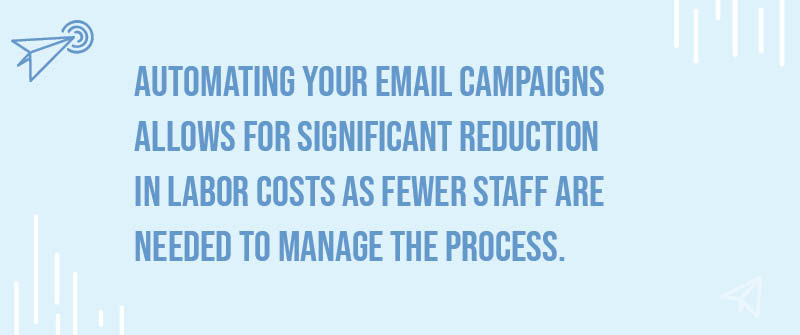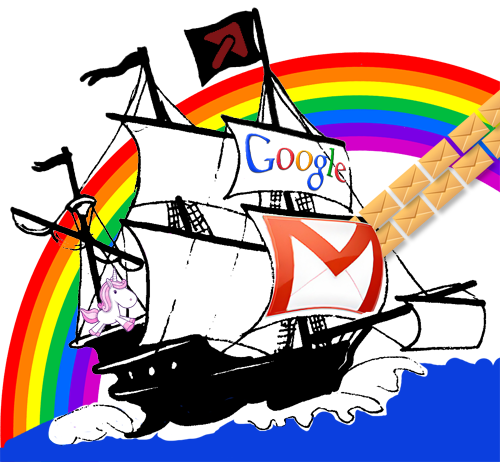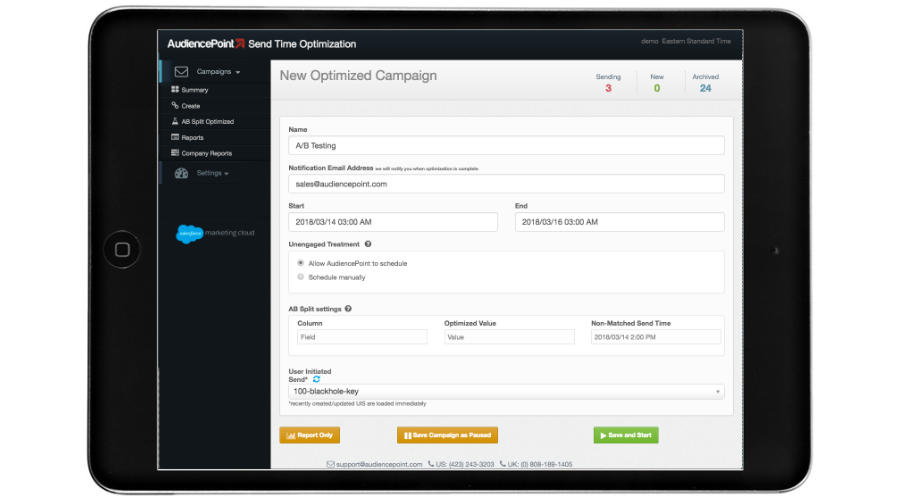AudiencePoint is thrilled to announce our new integration with Klaviyo! AudiencePoint is looking for partners to pilot our...
What Is Automation Email?
Definition of Email Automation
Email automation refers to using technology to send emails automatically based on predefined rules and schedules. At its core, email automation allows businesses to streamline their communication processes, ensuring timely and relevant engagement with their audience. This technology leverages software to carry out repetitive tasks without manual intervention, which increases efficiency, consistency, and personalization in email marketing strategies.
Common Uses of Email Automation in Business
In the business world, email automation is an invaluable tool for various functions many for automated campaigns. For instance, it can be used for lead nurturing, where a series of automated emails guide potential new customers through the sales funnel. Another common use is for welcome emails that greet new subscribers and provide them with essential information or offers. Moreover, transactional emails such as order confirmations or shipping notifications are prime examples of automation in action. These use cases demonstrate how email automation can support marketing and operational activities within a business setting.
Examples of Email Automation
To illustrate, consider an e-commerce store that wants to enhance customer retention and customer relationships. By setting up an automated email sequence, the store can send personalized product recommendations based on previous purchases. Another example is a SaaS company using automated emails to onboard new users, providing them with tutorials and tips to get started. Additionally, many businesses employ email drip campaigns vs email automation campaigns to deliver timely content to leads, keeping them engaged over a period. These examples highlight the versatility and effectiveness of email automation in various business contexts.
What Is the Key Benefit of Using Email Automation?
Time-Saving Benefits
For email marketers, one of the most significant advantages of implementing email automation is the sheer amount of time it saves with marketing messages. Manual emailing can be an extremely tedious and time-consuming task. With automation, months’ worth of personalized emails can be scheduled to be sent at optimum times. This means that your team can focus on other vital activities, such as developing strategies or analyzing campaign performance, which ultimately can lead to increased productivity.
Automation tools also provide features that allow for streamlined organization and scheduling. For instance, automation can help categorize contacts, segment audiences and tailor messages accurately based on user behavior. By pre-setting these actions, you free up valuable time and ensure that your campaigns are both consistent and reliable.
Improved Customer Engagement
Another pivotal benefit of email automation is the marked improvement in customer engagement. Automated emails messages ensure timely responses and interactions, which are especially crucial for new subscribers or leads. By engaging with your audience promptly and consistently, you not only maintain their interest but also build a stronger relationship with them.
Examples of enhanced engagement include automated welcome emails, cart abandonment reminders, or birthday wishes. Such targeted communications can increase open rates, click-through rates, and conversions. Essentially, automation enables more personalized and meaningful interactions without the constant manual effort.
Cost-Effectiveness
While the initial setup of an email automation system might require some investment, the long-term benefits far outweigh the costs. Automating your email campaigns allows for significant reduction in labor costs as fewer staff are needed to manage the process. Moreover, the optimization of your email marketing efforts often results in higher ROI.
There are also numerous free email automation tools available that offer excellent features suitable for small to medium-sized businesses. These tools help you execute professional and effective campaigns without breaking the bank. Even larger businesses benefit from the scalability that automation offers, making it a financially wise decision across the board.

How Do I Plan an Email Automation?
Planning an email automation strategy requires careful thought and a structured approach to ensure your efforts yield the desired results. Here’s a step-by-step guide to help you plan an effective email automation campaign.
Setting Goals for Your Email Automation
The first step in planning an email automation strategy is to define clear objectives. Are you looking to nurture leads, improve customer retention, or boost sales? Having a well-defined goal will help you measure success and make necessary adjustments.
Example Goals
- Nurture leads: Develop a series of targeted emails that guide potential customers through the decision-making process.
- Improve customer retention: Send personalized messages based on customer behavior to enhance engagement and loyalty.
- Boost sales: Use automated emails to send promotional offers or reminders to customers who have shown interest in specific products.
Choosing the Right Tools
Selecting the appropriate tools for your email automation is crucial. Platforms such as Gmail and Outlook offer various features that allow you to send automated emails seamlessly. Evaluate the features and pricing of different email automation tools to find the one that best fits your needs.
Popular Email Automation Tools
- Mailchimp
- HubSpot
- ActiveCampaign
Creating an Automated Email Template
An effective automated email template is essential for maintaining consistency and professionalism. Ensure your template includes the following elements:
- Personalization: Use personalized tokens to address recipients by name and tailor content to their needs.
- Clear Call-to-Action: Include a prominent call-to-action to guide your audience toward the desired action.
- Mobile-Responsiveness: Design templates that display well on all devices but especially on mobile phones.
Testing and Optimizing Automated Emails
Before rolling out your email automation campaign, conduct thorough testing to identify and fix any issues. A/B testing can help you understand what content, subject lines, and send times resonate best with your audience. Continuously monitor metrics such as open rates, click-through rates, and conversions to optimize performance.
What Is the Difference Between Email Marketing and Email Automation?
Defining Email Marketing
Email marketing involves sending emails to current or prospective customers with the intent of promoting products and services or fostering brand loyalty. This is what an email marketing customer journey involves. It encompasses newsletters, promotional emails, and transactional emails, each tailored to meet specific marketing objectives. These emails are typically crafted manually or with the aid of templates and sent out in bulk to reach a broad audience.
Comparing Email Marketing and Email Automation
While email marketing centers on creating campaigns that engage and convert, email automation takes this a step further by automating these processes. Email automation leverages data and technology to send personalized and timely messages to subscribers based on predefined triggers or behaviors. This can include welcome emails, abandoned cart reminders, and post-purchase follow-ups. The key difference lies in automation’s ability to deliver targeted content without continuous manual intervention.
How Email Automation Enhances Email Marketing
Email automation enhances email marketing by providing a more efficient and scalable approach to customer engagement. By automating routine emails and leveraging behavioral data, marketers can create personalized experiences for each subscriber, increasing the likelihood of conversion and retention. Automation also allows for real-time responses to customer actions, such as signing up for a newsletter or making a purchase, ensuring that communications are timely and relevant. Ultimately, integrating automation into your email marketing strategy can lead to higher efficiency, improved engagement, and better ROI.
Unlock the full potential of your email marketing campaigns with AudiencePoint’s comprehensive email engagement platform. Our tools offer deep insights into your subscribers’ behaviors, enhancing your ability to create personalized and effective automated email campaigns. Experience superior email verification, re-engagement, and IP warming that maximizes deliverability and drives your revenue growth. Contact AudiencePoint Today!





